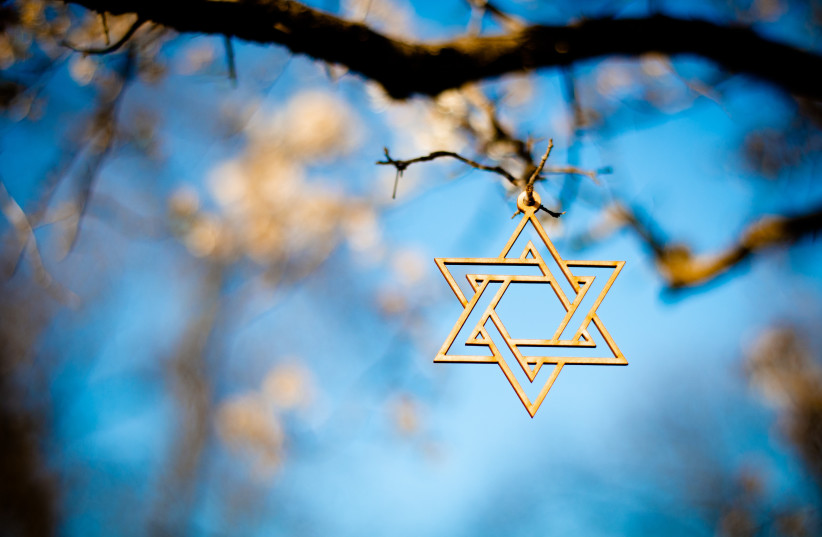Passover: The freedom of many names

Those different names for God not only reflect God’s divergent qualities but also mirror the divergence of how we as individuals experience and understand God.
Within the special Shabbat morning Torah reading for Passover we read, “You shall not offer the blood of my sacrifice with anything leavened, or let the sacrifice of the Feast of the Pessah remain until the morning” (Exodus 34:25). In this verse, the holiday is referred to as Pessah, based on the sentence “I will pass (ufasachti) over you” (Exodus 12:13). In addition, “pessah” is the name of the lamb sacrificed on the holiday (Numbers 9:2). As with most Jewish holidays, it has more than one name. In this case, three more:
- Chag Hamatzot/the Holiday of Unleavened Bread: The name of the flatbread we are commanded to eat during the holiday (Exodus 12:17; Deuteronomy 16:3).
- Chag Ha’aviv/the Spring Holiday: We are told Passover needs to be observed in the spring (Deuteronomy 16:1), though it appears that this specific name does not appear until much later in Jewish history. Spring, the season of rebirth, also parallels the rebirth of the Jewish people from slavery to freedom.
- Zeman Cheyruteinu/the Time of our Freedom: We celebrate the transformation from slavery to freedom (Exodus 13:9). Included within that name is the implication to never take freedom/democracy for granted.
Jewish holidays with multiple names
Passover is not the only holiday in Judaism that is called by more than one name:
- Rosh Hashanah/the Head of the Year: There are actually four “new years” in Judaism (Mishna Rosh Hashanah 1:1). Rosh Hashanah is for the numbering of the years, which is why this year of 5783 began on the first of Tishri. The term “Rosh Hashanah” appears first in Ezekiel 40:1. It is also known as Yom Hadin/Day of Judgment, since we are judged on that day by God (Rosh Hashanah 16b).

It is also known as Yom Hazikaron/Day of Remembrance, echoing the phrase from the liturgy “Remember us for life.” None of these names appear in the Torah. Rather, in the Torah it is established as “a reminder by (shofar/horn) blasts” (Leviticus 23:24), which leads to its other name, Yom Teruah/Day of Blasting.”
- Yom Kippur/Day of Atonement is derived from the sentence “But on the 10th day of the seventh month it is the Day of Atonements/kippurim” (Leviticus 23:27). The plural, kippurim, mirrors our prayers, which we say in the plural since in Judaism our concerns are not only for ourselves but always communal. Yom Kippur is also called a Shabbat Shabbaton (Leviticus 16:31), emphasizing the totality of refraining from work so that we can focus on atonement.
- Sukkot/Festival of the Booths is named for the booths we build for the holiday to commemorate the booths we lived in for the 40 years while in the desert, “in order that future generations may know I made the Israelite people live in booths when I brought them out of the land of Egypt” (Leviticus 23:42).
Karin Kloosterman, founder of the Green Prophet website, points out that the booths, “came from when the farmers would dwell with their families and eat meals in them to be close to the harvest, in celebration of a job completed.” It is also known as Chag Ha’aseif/the Festival of the Ingathering (of the fall crops) (Exodus 26:16), as well as Chag Leshem/the Festival of God (Leviticus 23:39), or simply Hachag/the Festival (I Kings 8:2). Finally, it is also called, Zeman Simchateynu/the Time of our Joy, since we are told to “rejoice before Adonai, your God, seven days” (Leviticus 23:40).
- Hanukkah/Dedication (Shabbat 21b) is so named because the Maccabees were able to rededicate the Temple after defeating the Greeks in 164 BCE (I Maccabees 4). It is also called the Festival of Lights (Josephus, Antiquities).
- Tu B’Shvat/literally the “15th of Shevat,” since it falls on the 15th day of the Hebrew month of Shevat. It is also called Rosh Hashanah Leilanot/New Year of the Trees (Mishna Rosh Hashanah 1:1), as it marked the beginning of the fiscal year for trees.
- Shavuot/the Festival of Weeks is how the holiday is termed in Deuteronomy 16:9-12, connecting it to the seven weeks that are counted (known as counting the Omer) from Passover to Shavuot. It is also referred to as Chag Hakatzir/the Harvest Festival (Exodus 23:16) and Chag Habikurim/Festival of the First Fruits (Numbers 28:26), reflecting its agricultural nature.
It is also known as Zeman Matan Torateynu/the Time of the Giving of the Torah because the rabbis place the giving of the Torah on Shavuot. (Shabbat 86b; Shulchan Arukh, Orach Chayim 494:1). That is to say, there is food for the body – the harvest; and the food for the soul – the Torah.
WE HAVE examined seven Jewish holidays and discovered 24 names! Adding to this, Rabbi Ismar Schorsch reminds us, “Judaism is a wellspring that emits an endless profusion of names for God. The Bible contains some 70; rabbinic literature adds another 90 or more, and no one as yet has bothered to tally the number added by Jewish mystics.”
Those different names for God not only reflect God’s divergent qualities but also mirror the divergence of how we as individuals experience and understand God.
The different names for Passover exemplify the multidimensional aspect of the holiday. This reminds us that we are most free as individuals when we acknowledge and allow ourselves to live – fully – the different dimensions of who we are. This lesson of being multifaceted, as we have seen, is also carried by the many names of the other Jewish holidays. ■
The writer, a Reconstructionist rabbi, is rabbi emeritus of the Israel Congregation in Manchester Center, Vermont. He teaches at the Arava Institute for Environmental Studies on Kibbutz Ketura and at Bennington College.
Jerusalem Post Store
`; document.getElementById("linkPremium").innerHTML = cont; var divWithLink = document.getElementById("premium-link"); if (divWithLink !== null && divWithLink !== 'undefined') { divWithLink.style.border = "solid 1px #cb0f3e"; divWithLink.style.textAlign = "center"; divWithLink.style.marginBottom = "15px"; divWithLink.style.marginTop = "15px"; divWithLink.style.width = "100%"; divWithLink.style.backgroundColor = "#122952"; divWithLink.style.color = "#ffffff"; divWithLink.style.lineHeight = "1.5"; } } (function (v, i) { });
